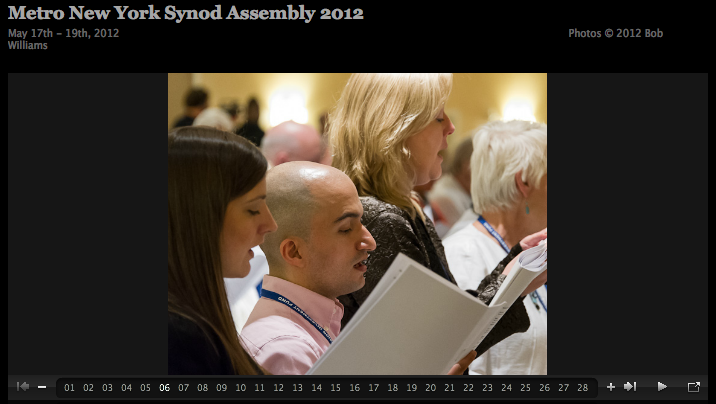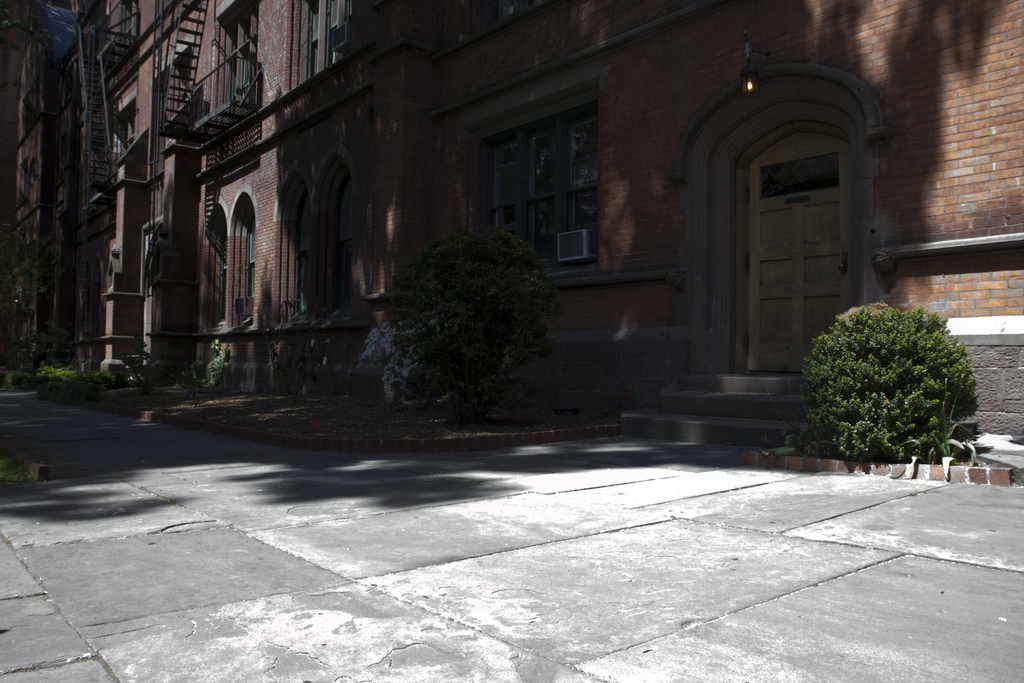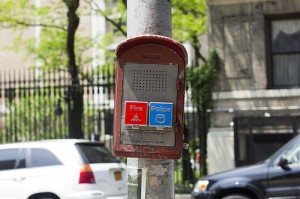
Washington Heights, New York City. May 2, 2012
365 Part Deux
Author: MASadmin
Flash, pizzaz, bang, wow! You do watch “What Not To Wear,” don’t you?
 This week was the first episode of the tenth season of What Not To Wear. For the uninitiated, the show brings in the fashion clueless, trashes their wardrobe, teaches them some new tricks, and gives them $5000 for a whole new look. Even though they stopped having guys as the fashion victims after the second season, I still adore the show. I use to work in the building right next to where they filmed the show and, I have to tell you, that Clinton Kelly is tall (and awesome). I find Stacey London and Clinton Kelly to be the bee’s knees and you should too.
This week was the first episode of the tenth season of What Not To Wear. For the uninitiated, the show brings in the fashion clueless, trashes their wardrobe, teaches them some new tricks, and gives them $5000 for a whole new look. Even though they stopped having guys as the fashion victims after the second season, I still adore the show. I use to work in the building right next to where they filmed the show and, I have to tell you, that Clinton Kelly is tall (and awesome). I find Stacey London and Clinton Kelly to be the bee’s knees and you should too.
Anyways, a few seasons ago, an Episcopal priest was brought onto the show. The show was great not only because it brought to light the dangerous fact that the majority of clergy are poor dressers but also because, I thought, it helped acknowledge that there are young clergy women in the world and that they need our support. In honor of the season premier (which I didn’t particularly care for), Emily the Priest was brought back to update us on her life (scroll down and click on her image – she’s wearing the collar). I felt that she was nervous on screen (who can blame her?) but I was glad to see her back. However, I was not the only one to notice that she was wearing a sequined top with her collar! The comments take her to task (and I noticed that one of my professors from LTSP – who has fantastic style – reads the same blogs I do) though I think they’re harsher than they should be. I know what Emily is trying to do, adding some sparkle to the all-black-uniform. Personally, I think she should have focused on the jacket (a well fitted jacket in a dark patterned gray is fantastic – the few clergywomen I know who have these always look great). Throw on a few quick accessories, a killer shoe, and BAM, she’d be well on her way. But even without all that, I still applaud her for taking the risk that she did.
And the reason why I applaud her is because, well, I have a problem with the all-black-uniform. My problem isn’t with the collar but how clergy assume that if they wear all black, they get away with what they’re wearing. But that’s not true! If the cut is wrong, the jacket boring, the shirt poorly fitted, and the material ghastly, that clergy person is going to look terrible. TERRIBLE. And we, for some reason, seem to give clergy a pass when they do that. As a New Yorker, I am firmly aware of the power of black. But I’m also aware that relying on black to make your clothing decisions is ridiculous because nothing looks worse than a poorly fitted all-black outfit. The all-black look can be a very boring and a very easy look that can seem, on first glance, effortless. But, let me worn you, that it is not. Cut, material, pattern, accessories, fit – that is where style lives and where a person’s identity can echo forth. To not notice those details is, sadly, to let sloppiness rule and that is an identity trait that only a few can truly pull off. Style isn’t a fad nor is it only built around expensive articles of clothing. Style is a personal dash of identity that bleeds into your clothing. It says who you are, what you’re about, and encourages other people to be in community with you. Style says everything when it comes to first impressions. Style says that you know who you are and that you have contextualized who you are in the world. And I find that powerful because if style can say that, then when I meet a clergy person for the first time, my guards drop because I feel that since they know who they are, they are willing to know who I am too. That isn’t necessarily always true but it is a start to opening doors, building relationships, and forming community. Style matters! And I hope, maybe just maybe, that while seminaries redevelop their curriculum for the current world, that they seriously think about hiring Stacey and Clinton for one-off workshops for their senior classes. It would do some good.
Here’s the Project Connect video that was part of my presentation at the assembly
I can finally see why everyone thought it was so funny.
There’s proof that I attended MNYS Assembly

This photo gallery proves I was there! I’m singing a hymn on Thursday with the Advent crew.
365.254 Chula hangs out

My Apartment, Washington Heights, New York City. May 1, 2012
365 Part Deux
365.253 Steps in front of GTS Library

General Theological Seminary, New York City. April 30, 2012
365 Part Deux
Thunderstorms 1; Seminarianzilla 0
 Tonight, I met up with some people from the internet to try and experience the first day of Manhattanhenge. Alas, at the last minute, thunderstorms moved into the area so my vantage point at 23rd street was a wash. As we said our goodbyes, one gentleman stuck out his hand and said “Good luck with the God stuff.” Good luck, indeed.
Tonight, I met up with some people from the internet to try and experience the first day of Manhattanhenge. Alas, at the last minute, thunderstorms moved into the area so my vantage point at 23rd street was a wash. As we said our goodbyes, one gentleman stuck out his hand and said “Good luck with the God stuff.” Good luck, indeed.
On Saturday, I sat in on a meeting at the Synod office that was taking a look at Latino ministries in Manhattan. I was encouraged to attend since I’ve been told that english-speaking Latinos are starting to get noticed in the ELCA and they are becoming a targeted demographic. The meeting took all morning and I really learned a lot. I won’t go into details because I’m not sure what’s confidential and what’s not, but I do want to talk about two approaches towards ministry that were brought up and that I can’t get out of my mind.
During the conversation, the topic of mission came up. Actually, the whole meeting was about mission but there came a point where the details came into play. And the group was split into how they saw themselves. Since we’re part of a church that tries to promote the welcoming others, there was a big push by some of the ministries to see themselves as primarily responding to the people who enter their doors. And, in NYC, this isn’t actually a bad conclusion based on demographic data, etc. As Latinos spread out along the subway lines into the Bronx and Queens, working out the logistics of where to be, matters. Opening the doors of the church and seeing oneself as primarily a nurturing kind of church – where the church is opened to everyone who walks in the doors (and if you are in Manhattan, people do walk into your doors), seems a natural expression of some of our theology. As much as it seems like a passive form of ministry that only takes care of those within its walls, in an active environment like NYC where people go across rivers (and state lines) to visit churches, this isn’t actually a terrible idea. Churches can live this way. And there are churches that thrive in this environment. And if I look at my first two years of seminary education, this is exactly the kind of church environment that I am being trained to be apart of. CPE, Pastoral Education, basic biblical survey courses, and the like, all lead to me being embedded into a church environment that has open doors, takes cares of people who enter the congregation, provides active mission support to the wider church, runs food programs, marches in political rallies against societal injustices, and all that good stuff that the mainline churches seem to do. But the more I think about it, the more I think that training isn’t quite right.
The other side of the discussion at the meeting was focused quite a bit on what it means to reach out and be active in the areas where latinos live. There was vague words thrown around like “boots on the ground,” “going out there,” “meeting people,” and all that. And I realized, while sitting there, is that I don’t really know what that means. I mean, in my head, I can kinda imagine what that might look like but I don’t really know. There’s been nothing in my seminary education (so far) about that. We talked quite a bit about going out and preaching the gospel. And since we’re good Lutherans, we spend quite a bit of time focusing on what we say when we go out there and speak. That is a practical detail that matters. But how to speak? That doesn’t seem to come up as much. Like, if I was asked to go into the Lower East Side that is inaccessible to subways, to reach the heavy latino populations out there, with my boots on the ground, what the heck does that even mean? What would it look like? How would I do it? I don’t really know.
I’ve got some ideas, of course, but all these ideas are rather new. I’ve watched my home pastor work the neighborhood in away that I envy. He talks to people on the street, visits local businesses, and is a visible presence. He’ll wear his collar, is called father all the time, and still takes time to chat with the waiters at the local dinner or the young family walking their dog and inviting them to the Blessing of the Animals service. That’s one way to do it. But would that be enough? Hmm. I’m not sure. I’m sure there’s more that can be done that would do more than just get butts in the pews.
For the Latino ministries to grow in Manhattan, I think they’re going to have to actually go outside. Some will come in the doors but not enough. And I think Latino ministries can get bogged down and subsumed under wider cultural realities of the Metropolitan New York Synod if they are not careful. I’m curious to see how english-speaking Latinos are taken into account. I didn’t hear them mentioned much in the meeting. But, at our Synod Assembly, during the Project Connect presentation about raising up new leaders from within congregations – there were two english-speaking Latinos looking at a sea of white faces. We’re kinda already here and we’re being pulled into leadership positions already. But that’s not an excuse to wait for us to show up at the door steps. We’re out there and as a church, we should just be incarnational, and get on out there.
365.252 General Theological Seminary

General Theological Seminary, New York City. April 29, 2012
365 Part Deux
365.251 Dan the Russian says Goodbye
Dan’s goodbye party, Astoria, 
New York City. April 28, 2012
365 Part Deux







